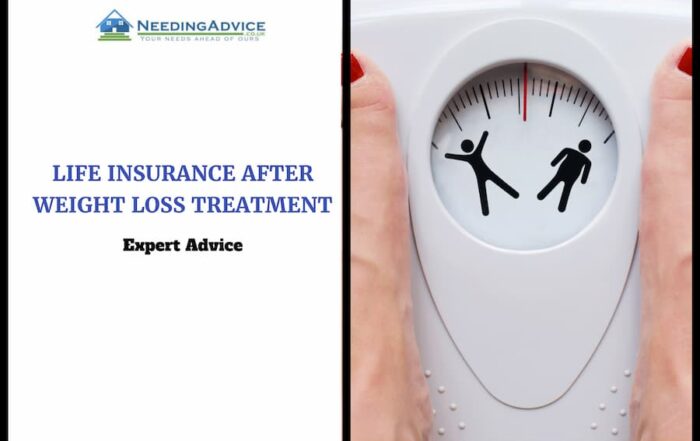Life Insurance
It is crucial for individuals labeled as non-standard by insurance providers to receive proper guidance to ensure they obtain the appropriate coverage at a reasonable cost.
Underwriters will ask for the following information for those seeking life insurance with a Hypermobility Syndrome:
- Date of diagnosis
- Joints affected
- Symptoms
- Frequency and severity
- Other medical issues
Certain insurance companies may exercise caution when evaluating Life Insurance applications for individuals with hypermobility syndrome. Some insurers may automatically connect hypermobility to Ehlers-Danlos Syndrome, known as EDS Type III, and categorize it as a more severe condition than it actually is. It’s important to submit your Life Insurance application with an insurer who can accurately assess hypermobility.
During the Life Insurance application process, the insurer will inquire about the duration of your hypermobility syndrome diagnosis and how you manage it either through medication, treatments, or lifestyle changes. Being asked about your work status is an important factor for the insurer to determine the seriousness of your hypermobility.
If you choose the right insurer, having hypermobility syndrome shouldn’t impact your Life Insurance application, unless you’ve had a major injury or have significant musculoskeletal issues. Individuals with mild symptoms of hypermobility syndrome may qualify for Life Insurance at standard rates. If your symptoms have worsened recently or if hypermobility is affecting your daily life and work, the insurance company might provide Life Insurance at non-standard rates with a premium increase.
Critical Illness
Individuals with hypermobility syndrome should be able to apply for Critical Illness Cover, as long as the condition does not greatly impact their daily life and is not associated with another illness such as Marfan’s syndrome. The insurer needs to understand how hypermobility syndrome impacts you, such as your ability to work, mobility assistance needs, painkiller use, and mood state.
Critical Illness policies include a claims definition known as Total Permanent Disability, which may be included automatically or added on separately to your cover; the process of making a claim can be quite challenging. If you choose to add Total Permanent Disability coverage to your policy (TPD), an exclusion may be included due to the higher risk of musculoskeletal disorders caused by hypermobility and the increased likelihood of breaking and spraining. While it might not be perfect, you shouldn’t let that stop you from getting access to all the other medical conditions covered by the policy, such as heart attack, cancer, and stroke.
Income Protection
Individuals with hypermobility syndrome should secure Income Protection with insurers that are able to assess their applications. Some insurance companies may not provide Income Protection for individuals with hypermobility syndrome, but there are others that are willing to offer it, and our goal is to help you find the right one. The insurance provider will need to assess the extent of your hypermobility prior to providing you with Income Protection coverage.
You will need to report any instances where you were unable to work or needed time off due to health reasons, specifically related to hypermobility or any other medical condition. Exclusions may apply to your Income Protection policy for claims related to musculoskeletal conditions.
It is important to be honest about the impact of hypermobility syndrome on you. You should disclose any important injuries or illnesses in your medical history to the insurer for a thorough health assessment. During a successful Income Protection claim, the insurance provider will contact your GP to obtain a detailed overview of your medical history.
Life Insurance After Weight Loss Treatment – Complete UK Guide
Many people in the UK are now using weight loss drugs such as Mounjaro or Ozempic (a type of GLP-1 agonist drug) to treat obesity and related conditions like Type 2 diabetes or insulin resistance. These modern weight loss medications, often [...]
Life Insurance for Water Sports
Life Insurance Engaging in water sports offers a great opportunity to enjoy nature and also experience an adrenaline rush. It is important to understand the implications for your insurance, whether you are white water [...]
Life Insurance for Triathlons
Life Insurance Life insurers view regular exercise as a positive lifestyle choice, indicating your commitment to caring for your health. Participating in triathlons generally doesn't affect your life insurance, although there are some cases [...]
Life Insurance for Tennis
Life Insurance Life insurance companies view regular exercise positively. It demonstrates dedication to maintaining good health and contributes to staying fit and healthy throughout life. Engaging in tennis as a hobby typically doesn't impact [...]
Life Insurance for Snowboarding
Life Insurance Snowboarding requires a good amount of skill and is an enjoyable sport. Snowboarding during a vacation is not expected to impact your life insurance application. Certain activities may be perceived as riskier [...]
Life Insurance for Scuba Diving
Life Insurance Participating in a single scuba diving session during a vacation is not likely to impact your life insurance application. Insurers prefer to have specific details about your dives if you are scuba [...]












